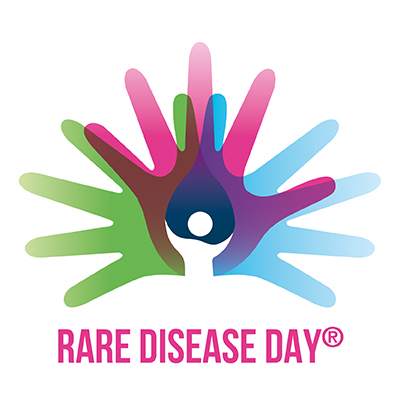
About Rare Disease Day
Rare Disease Day is a globally celebrated date established to bring a greater awareness to uncommon conditions. In Europe, a disease that impacts fewer than 1 in 2,000 people is considered rare. Due to their less substantial numbers, these diseases are the last to be talked about and advocated for, while making just as significant an impact on the patients they burden every day. Rare diseases can come in a variety of forms, from genetic disparities, to chronic disabilities, to forms of cancer. All in all, these conditions amount to approximately 7,000 different rare conditions.
The first Rare Disease Day was founded in 2008 on February 29th, a rare date in itself. Since then, the day has grown to incorporate numerous health organisations across the world, including events in 94 countries last year. This annual awareness day encourages advocates to join together from all health parameters to voice the needs of rare conditions and the patients they effect.
The theme this year revolves around the importance of research for rare diseases. The rarity of these conditions results in a notable disparity in focused studies like clinical trials and further funding initiatives. With only around 50% of rare conditions being supported by an official advocacy foundation or organisation, many diseases fall by the wayside for opportunities in experimental treatment, which could make all the difference for patients coping with their diagnosis.
Impact on Rare Cardiovascular Cancers
The need for additional research is often reflected in the care and survival rates of these diseases, specifically in rare cardiovascular cancers. These cancers are often misdiagnosed, lending to misguided or insufficient treatment of the condition. Even when correctly diagnosed, treatments are often less accessible to patients because of high costs and limited access to specialists. Additionally, due to sparse experimental study, these rare cardiovascular cancer patients may be missing the innovative and life-saving care they need.
An example of this is pericardial mesothelioma. This rare cancer is caused by exposure to the carcinogen asbestos, over time taking root in the lining of the heart. As one of the rarest forms of mesothelioma, this condition is often misdiagnosed, lending to an extremely poor prognosis for the patient. As with many other rare cardiovascular cancers, its lack of familiarity and awareness in the clinical sector may lead to high rates of patient fatality.
With the heart being such a sensitive, yet intrinsic organ, there are many risks associated with insufficient care of cardiovascular diseases and cancers. Studies have shown that there is often a connection between cancer treatment and the weakening of the heart, sometimes resulting in a heart attack. Treating the heart can also put a strain of the rest of the patient’s body, and their condition must be monitored closely as it may lead to further complications.
Rare Diseases Going Forward
Honing in on the impact felt by rare disease patients helps to both highlight the asymmetry in relief options and encourage timely solutions. It affirms the need for advocates and researchers to collaborate, prioritizing further analysis of rare heart cancers like pericardial mesothelioma. Rare Disease Day acts as a push for additional funding into these conditions and advanced treatment options.
With the theme of research in mind, health professionals can work to address the requisite for more clinical trials, medical data sharing, and accessible treatment options. Awareness days like this help to start the dialogue and further inform about rare diseases, while celebrating in the successes and clinical studies that continue throughout the year.
This post is in collaboration with the Mesothelioma Cancer Alliance.
